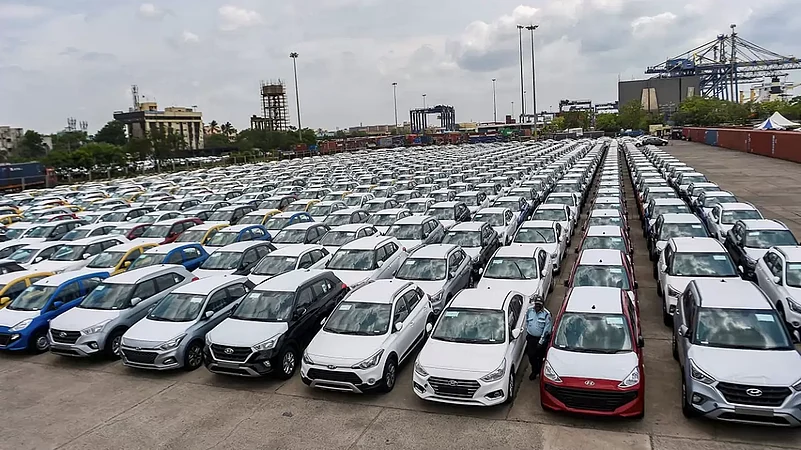The auto industry's estimation of clocking passenger vehicle sales of around 40.5 lakh to 41.5 lakh in the next fiscal will be aided by Union Budget 2023-24, which has provided many demand-creating provisions, Maruti Suzuki India Senior Executive Officer, Marketing & Sales, Shashank Srivastava said on Thursday.
With the auto industry's growth "very highly correlated" with the overall economy, he said the "growth oriented" Budget of finance minister Nimala Sitharaman has ticked "most of the boxes" as far as the auto industry is concerned.
"We have been predicting somewhere between 4.5 per cent to 7.5 per cent growth (in passenger vehicle sales), that's about 4.05 million to 4.15 million, for next year (2023-34). This year the industry should end at around 3.85 million (units)," Srivastava told PTI. When the prediction was made, it was assumed that there would be no great changes in terms of tax rates and other factors that impact auto demand, along with inflation, crude oil prices and commodity prices remaining stable, he added.
"The auto industry's growth is very highly correlated with the overall economic growth...In that respect, any Budget which is growth oriented, should be good for the auto industry and we saw in yesterday's Budget that it was growth oriented," Srivastava said.
From an auto industry perspective, he added, "It (the Budget) ticks most of the boxes."
He listed out that proposals by the finance minister, such as 33 per cent increase in infrastructure development capex to Rs 10 lakh crore, extension of Centre's 50-year interest-free loans to states and correction in tax slabs for taxpayers, will help in creating demand for automobiles.
"The thing with capex is, it not only creates a demand in the short term but also in the long term...On the supply side it creates the capacity, so much required for growth. So, it's great in that respect, as it also creates employment," Srivastava said. The second aspect of the Budget, which should help the auto industry is the larger disposable income in the hands of consumers through the new tax regime, he added.
"The higher disposable income in economic terms leads to higher propensity to spend, so that's a positive. Also the government has announced scrappage of 9,00,000 plus vehicles of the government and that should create a good replacement demand as well," Srivastava added. In those aspects, he said, "I think it's been a very good budget for the auto industry."































